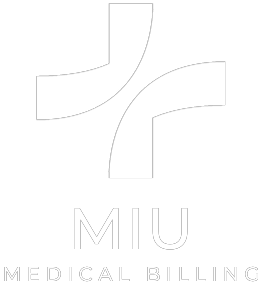Introduction
Challenges in hospital billing can be illustrated as forming a maze for patients and healthcare providers. In Texas, service providers in medical billing services make it hard for individuals to comprehend how much they are supposed to pay. Continuing the previous blog posts on hospital billing in Texas, this discussion explores hospital billing problems, specifically in Plano. A deeper look at the barriers that patients and providers experience, the services of medical billing, and the ways of dealing with this issue will be discussed. Hospitals also need to fully grasp the private insurance billing system to improve the hospital’s revenue cycle for patients and healthcare organizations in Texas.
The Texas Healthcare Landscape
Health care in Texas is a broad sector that is also very competitive due to the variety of facilities. The state’s oncology hospitals comprise small rural and large urban teaching hospitals. This diversity raises various billing issues, which create special problems in the organization. There is a law in Texas that hospitals are supposed to provide patients with itemized bills, which patients ask for but receive with great difficulty because of their overwhelming size. The uninsured rate within the state is still relatively high, ranking among the highest in the country, which does not help with billing, either on the patients’ or providers’ end.
Understanding Hospital Billing Services in Plano
Plano is the heartland of the Dallas Fort Worth metroplex and boasts excellent medical facilities. The financial side of providing services to patients in these hospitals is managed by developed billing procedures. Insurance verification, claim submission, and patient billing are some of the tasks that hospital billing services in Plano do. They are vital for guaranteeing that proper reimbursement for the specific services is provided to the hospitals.
The Complexity of Medical Coding
The general hospital billing process relies heavily on medical coding. Physicians write down medical aids and treatments while coders convert the activities and diagnoses into code. These codes set the standard for what rate hospitals set their prices for and how much insurance firms will pay for them. The medical coding profession in Texas hospitals is complex, leading to mistakes. Failure in coding will lead to claim rejections, long-delayed payments, and monetary burdens on the patients.
Insurance Verification and Pre-Authorization
Insurance verification is still another primary concern in billing hospitals in Texas. The clinical departments must check patient insurance before they can treat the patient. This process includes calling insurers, expounding policy conditions, and making prior consultations for specific treatments. Some of them are brought about by a failure in this step and could include hefty out-of-pocket expenses on patients and hospital revenue loss.
Claim Submission and Follow-up
Then, the hospital’s billing services fulfill claims with insurance carriers pending when the patient is discharged. This rigorous process needs special consideration when submitting documents to the proper authorities and following specific instructions. The study shows that Texas hospitals can lose a claim because of a mistake made during the submission or the absence of appropriate documentation. Following up on the denied claims and continuing the revenue cycle properly becomes vital when the claims are unpaid.
Patient Billing and Collections
After that, hospitals charge patients with their share of the accounts. This step is often the one that requires explanation and backing. Notably, a significant number of Texans require assistance regarding the share that they’re willing to contribute, especially when they are presented with high-deductible health plans. To be more specific, it is crucial to discuss that the hospital billing services can also be as critical for the payment as they are important for the attention to the further development of the patients’ financial issues, depending on the locations taken into consideration. For instance, the focus should be placed on the situation in Plano and other cities in Texas.
Technology and Hospital Billing
Technology is considered an essential aspect in the functioning of medical billing services in present-day hospitals. EHRs and practice management software manage billing. These tools are helpful since they increase efficiency, decrease errors, and promote effective department communication. However, Texas hospitals cannot easily implement and maintain the two systems.
Legal Requirements in the Texas Hospital Billing
Observing this case, it is pretty clear that Texan hospitals are subject to numerous laws and regulations at both the state and federal levels. The Texas Health and Safety Code spells out various elements of hospital billing for which there are state-specific standards. Even Federal codes such as the Affordable Care Act or the Health Insurance Portability and Accountability Act affect billing procedures. Hospital administrators often struggle to remain compliant with such regulations while making the billing system efficient.
Transparency in Hospital Billing
Texas law requires hospitals to adhere to several degrees of opacity in billing. When the patient asks for the information, a hospital must write to the patient about the reasonable faith estimate of the charges. However, due to the complexity of medical billing, these estimates are often not easily understandable. Maintaining and increasing transparency still presents a significant concern to most hospital billing services in Plano and Texas.
Uncompensated Care and Its Consequences
Texas still has the highest percentage of its residents without health insurance. This high uninsured rate leads to many hospitals ending up providing considerate care for patients who do not or cannot pay. Such costs should be absorbed by the billing departments, taking caution on the fact that they have to continue providing services to the community.
Outsourcing Medical Billing Services
This paper also seeks to understand why most hospitals in Texas opt for outsourcing billing. Below are some of the benefits that firms realize from outsourcing. Outsourcing enables firms to get access to specialized skills and technologies. However, it also creates problems regarding managing the billing process and the appropriate communication with the patients. Outsourcing medical billing services requires several considerations for hospitals before they implement it.
Patient Education and Communication
Managing the billing communication process with patients still requires a modern approach. Hos merges of the Texas public is comparatively ill-informed about the overall costs of medical treatment and insurance plans. The hospital billing departments in Pneed and across the state need to establish precise, brief methods of informing patients of the bill and the available facilities and payment plans.
Managing Denials and Appeals
Insurance claim denial is deemed a severe issue affecting most hospitals in Texas. Billing departments often need to implement sound procedures for denials and appealing cases. This process entails a lot of know-how about insurance policies and legal requirements. The ability to manage denial directly correlates with the hospital’s financial fitness.
Price Transparency Initiatives
New federal and state projects have been developing within the past years to enhance prices in healthcare. These efforts compel the Texas’ hospitals to disclose and explain their prices to the patients. Adopting such transparency measures in the face of competing price-sensitive strategies is, therefore, proving to be a challenge for the administrators of the hospitals.
Healthcare Financial Management Associations – Their Function
Organizations like the Healthcare Financial Management Association Websites offer a great source of information. These associations provide educational opportunities, means for networking, and best practice guidelines. Texas hospitals can use all these resources to enhance their billing systems and follow any development in the healthcare industry.
Working with Billing Errors and Disputes
However, it is impossible to avoid billing errors even if all measures are considered. The proposal also means that Texas hospitals need to implement effective mechanisms for handling matters concerning billing. Some of the strategies that come under this include proper assessment of the complaint lodged by the patient, rectifying the error as soon as possible, and adequate communication with the patient as the issue is being addressed.
Timeline of Future Changes in Hospital Billing for Texas
Hospital billing concerns in Texas change from time to time. Some of the trends include the rise of AI when it comes to coding and billing, enhancement of patient financial counseling, and constant attempts to streamline billing. These changes in demand mean that Texas hospitals have to remain flexible to have the ability to meet the needs.
Strategies for Patients Navigating Hospital Bills
Patients play a crucial role in managing their healthcare costs. Strategies for navigating hospital bills include:
- Requesting itemized bills and explanations of charges
- Understanding insurance coverage and out-of-pocket responsibilities
- Asking about financial assistance programs
- Reviewing bills for errors and disputing inaccuracies
- Negotiating payment plans when necessary
Best Practices for Hospital Billing Departments
To navigate the challenges of hospital billing, Texas facilities should consider these best practices:
- Invest in ongoing staff training and education
- Implement robust quality assurance processes
- Utilize data analytics to identify billing trends and issues
- Develop clear communication protocols for patient billing inquiries
- Stay updated on regulatory changes and industry best practices
Conclusion:
Managing the challenges that come with hospital billing in Texas should not be viewed in a simple light. Ranging from coding services to claim processing, the hospitals’ billing services in Plano and other cities in Texas encounter many challenges. A suggested solution for improving billing in Texas hospitals may be realized through the utilization of technology solutions that promote the enhancement of the existing modality and consistent improvement of this process through the promotion of transparency and patient education. To this end, patients have to take charge of demanding clarity regarding their healthcare costs and calling for appropriate invoices. The three stakeholders will play a key role in addressing current and future changes in health care by redesigning billing practices in the state of Texas.




